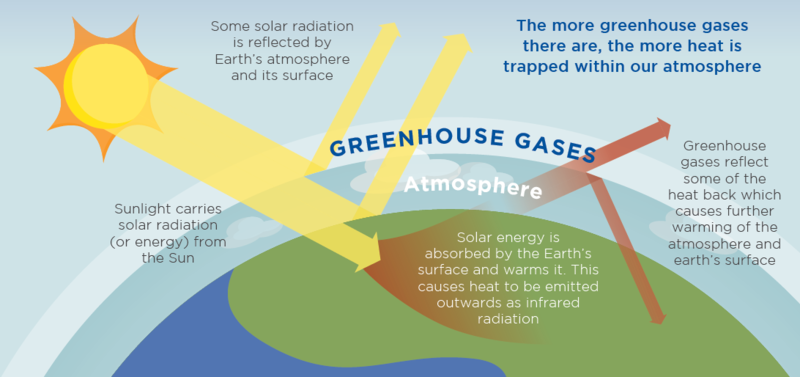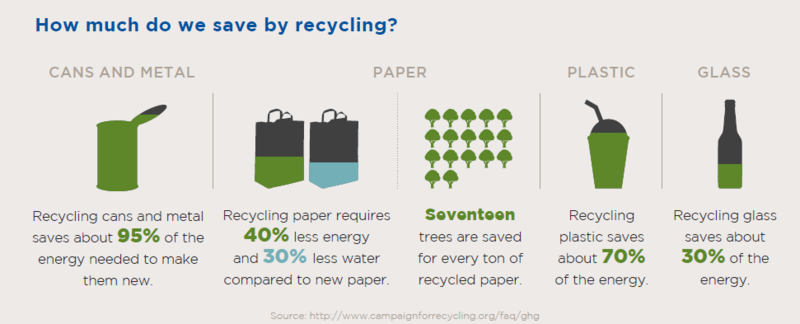Climate Change
Over the last few decades, scientists noticed changes in our atmosphere. There was a sharp increase of certain gasses trapped in the earth’s atmosphere and it was contributing to some of the worst natural disasters that were happening across the globe. The effect, which today contributes to an estimated 90% of the world’s natural disasters, became known as climate change.
South Africa isn't safe from the effects of climate change. In 2015, South Africa recorded its lowest annual rainfall since 1904. In the same year, Cape Town also recorded its highest temperature in the last 100 years at 42°C, the lack of rain and abnormally high temperatures ended up contributing to some of the worst fires the city has seen. And in 2017/2018, the Western Cape experienced its worst drought in decades, which threatened our water security.
According to the Western Cape Department of Environmental Affairs and Development Planning, climate change will affect the Western Cape in the following ways:
- Higher average annual temperature.
- Higher maximum temperatures.
- More hot days and more heat waves.
- Higher minimum temperatures.
- Fewer cold days and frost days.
- Reduced average rainfall in the Western Cape, particularly the western parts.
- Rising sea levels
- Increased fire risks
- Increase in the frequency and intensity of extreme weather events, including floods, droughts, and storm surges.
A 2 to 4 degree Celsius rise in temperature threatens farming, dam levels, our natural environment (plant, bird and vulnerable amphibian species). Our food supply, water security and economy will be under threat.
While 4 degrees Celsius of warming doesn't sound like much, consider the fact that the last time the earth was 5 degrees cooler was during an ice age.
As bleak as it may seem, there is hope. Climate change gives us an opportunity to innovate and create a more sustainable environment. All we have to do is play our part, and change our ways.
What causes climate change?
Climate change occurs when greenhouse gases traps too much of the sun’s heat in our atmosphere and stops it from leaking back into space. This is commonly known as the greenhouse effect, as it acts like the glass in a greenhouse. Carbon Dioxide, which is produced when we burn oils and fossil fuels, is responsible for most of our greenhouse gases.
Other greenhouse gases include:
- Nitrous oxide – which can be found in fertilisers with nitrogen.
- Methane – this is produced by cows and sheep when they digest their food, as well as landfills when food and other organic waste breaks down. Increases in livestock farming and waste going to landfill have increased the amount of methane we put into the atmosphere.
- Fluorinated gases – which is a man-made gas used mainly in an industrial setting.
How have people contributed to climate change?
While some greenhouse gases occur naturally in nature, human activity is responsible for speeding up the production of these gases.
The burning of fossil fuels (e.g. through driving cars and to produce electricity), the cutting down of rainforests, the destruction of native vegetation, unsustainable development, the increase of livestock farming, industrial processes and an increased amount of waste going to landfills all contribute to speeding up climate change.
How can you reduce climate change and prepare for its impacts?
It isn't a hopeless fight. You can play a part reducing greenhouse emissions and start preparing for the changes. Reducing your electricity usage, driving less and recycling more helps to reduce greenhouse gases. Here are a few examples of what you can do:
- Carpool or cycle to work, or use public transport if you can.
- Reduce your flights for work or pleasure, by organising cyber meetings, and enjoying local tourism.
- If you have a garden, plant indigenous, drought-resistant trees and shrubs around your home.
- Make sure your house is ready for storms in winter.
- Use energy efficient lightbulbs e.g. replace your lightbulbs with LED lightbulbs.
- Reduce your electricity consumption, unplug unused electronic devices, and turn off air conditioners.
- Turn down the temperature of your geyser or install a solar geyser.
- Invest in Renewable Energy (solar energy, wind energy, and Biomass).
- Reduce, re-use and recycle paper, plastic and other recyclable materials.
- Use water wisely.
These small changes don't only reduce your contribution to climate change, they also save you money and improve your health.
How is the Western Cape Government responding to climate change?
The Western Cape Government is playing its part in global effort to reduce greenhouse emissions, especially since the Western Cape is one of South Africa’s most vulnerable provinces to climate change.
The Western Cape Province has been developing its policy responses to climate change since 2008. This work has matured and deepened as we have analysed our greenhouse gas emissions, our priority areas for interventions to reduce emissions, and our priority areas for resilience building and adapting to a new climate.
We currently have the newly revised Western Cape Climate Change Response Strategy: Vision 2050 to guide us - a strategy and pathway which aims to achieve a climate resilient province by 2040 and to be a net Zero Emitter by 2050, with significant in-roads made in the strategy implementation by 2030.
The Strategy is transversal, providing policy direction for sector departments, municipalities and implementation partners outside government to collectively achieve the vision.
The vision expressed in the Strategy is a net zero emissions and climate resilient province by 2050, built on an equitable and inclusive economy and society that thrives despite the shocks and stresses posed by climate change. These goals match similar commitments made by subnational governments all over the world, in the City of Cape Town and South Africa as a whole.
Four guiding objectives give structure to the Strategy:
- Responding to the climate emergency;
- Transitioning in an equitable and inclusive manner to net zero emissions by 2050;
- Reducing climate risks and increasing resilience;
- Enabling a Just Transition through public sector, private sector and civil society collaboration.
The updated Strategy furthermore aligns with the economic growth ambitions of the Western Cape insofar as it supports the need for a green and low-carbon economic recovery.
One of the successful outcomes from our approach to climate change was the development of a Western Cape Climate Change Response Framework and Implementation Plan for the Agricultural Sector, better known as SmartAgri.
As our agricultural sector is vulnerable to changes in climate it is vitally important to provide guidance to farmers and others in the sector on how to prepare for the impacts of climate change, in order to protect their livelihoods as well as our province’s food security.
SmartAgri helps farmers from different parts of the Western Cape reduce their greenhouse gas emissions and protect their farms and businesses from the effects of climate change.
To learn more about the Western Cape Government’s responses to climate change visit:
The Department of Environmental Affairs and Development Planning: Climate Change Directorate
Where you can recycle?
A great way to start reducing your carbon footprint is by recycling. Find out where you can recycle.





